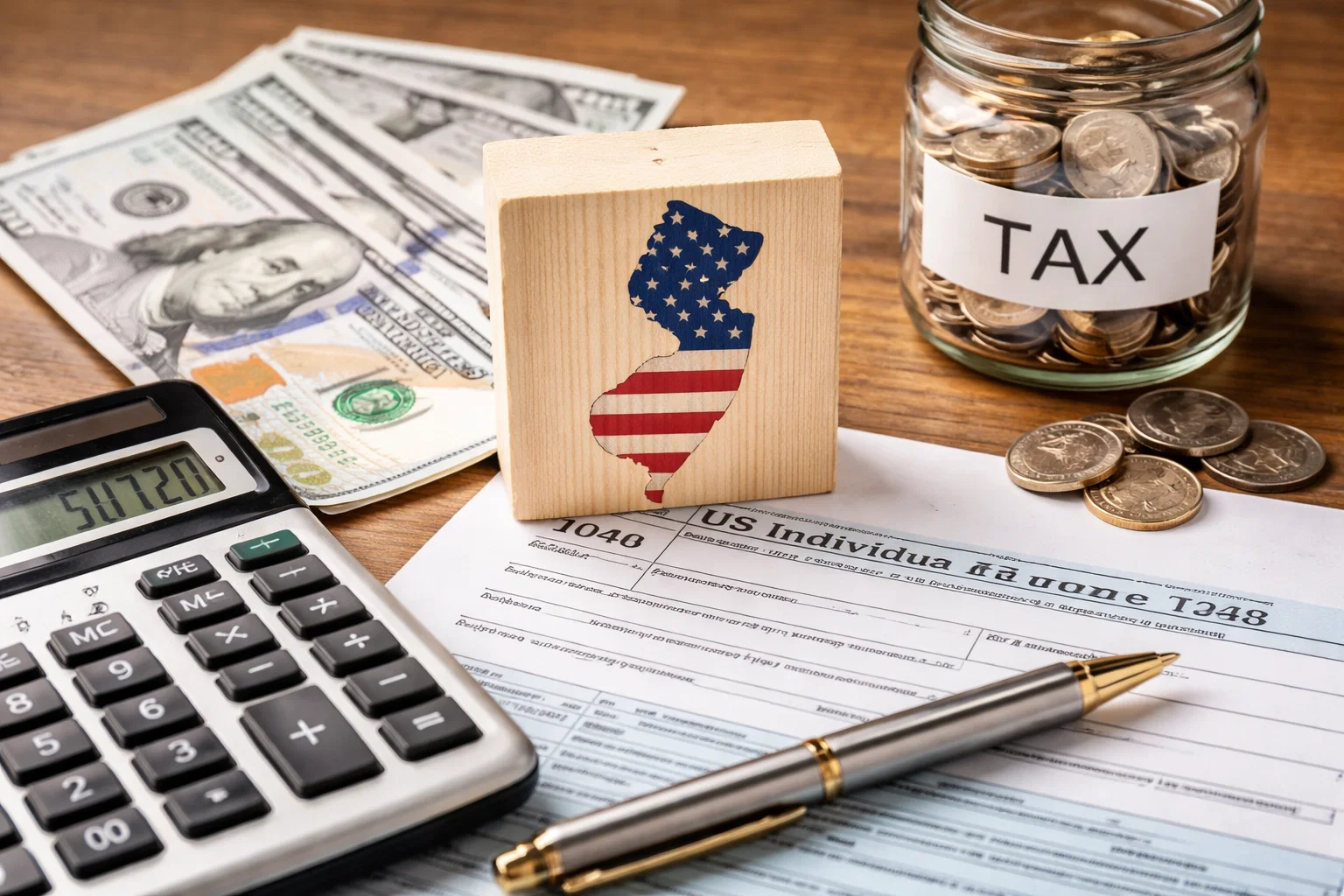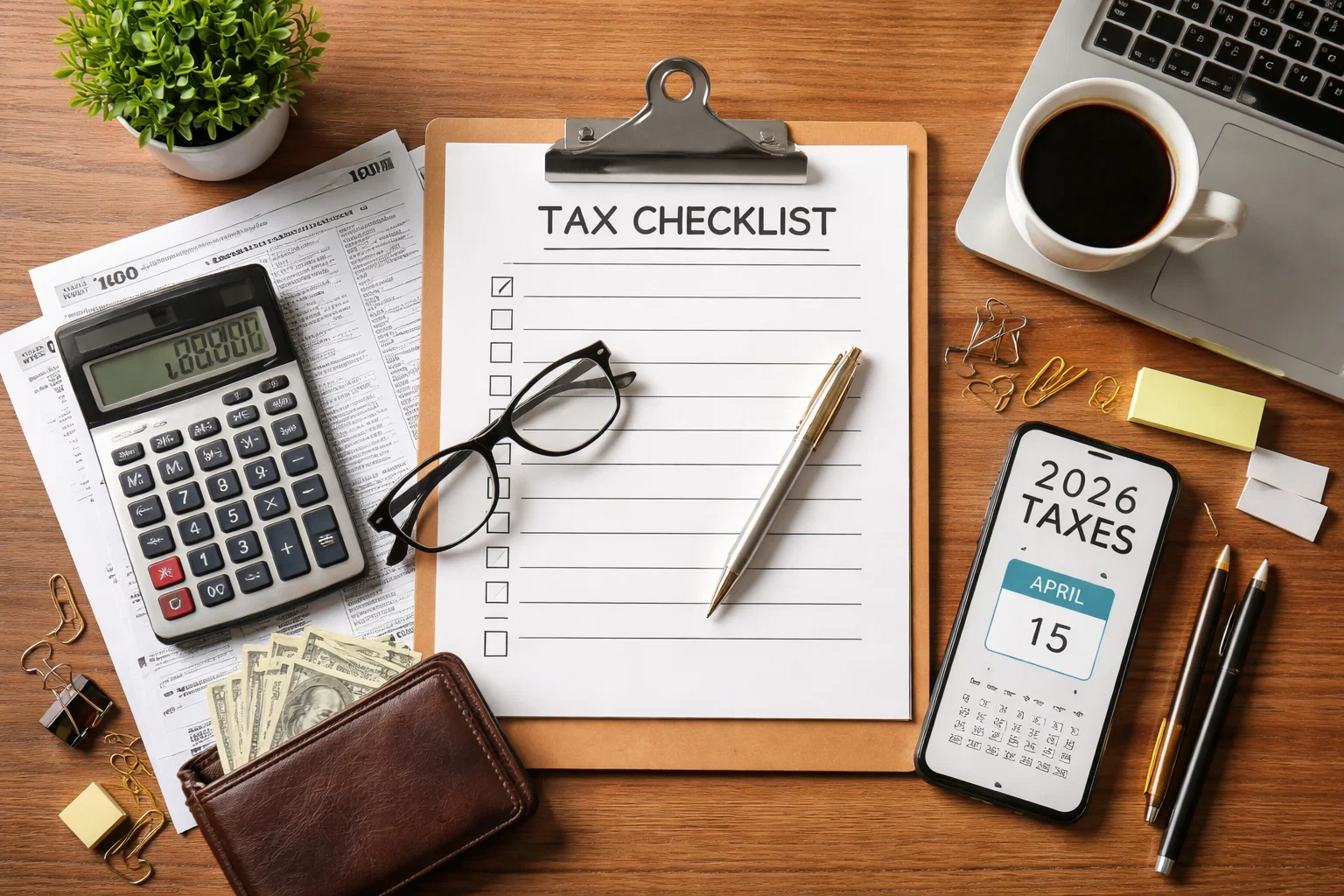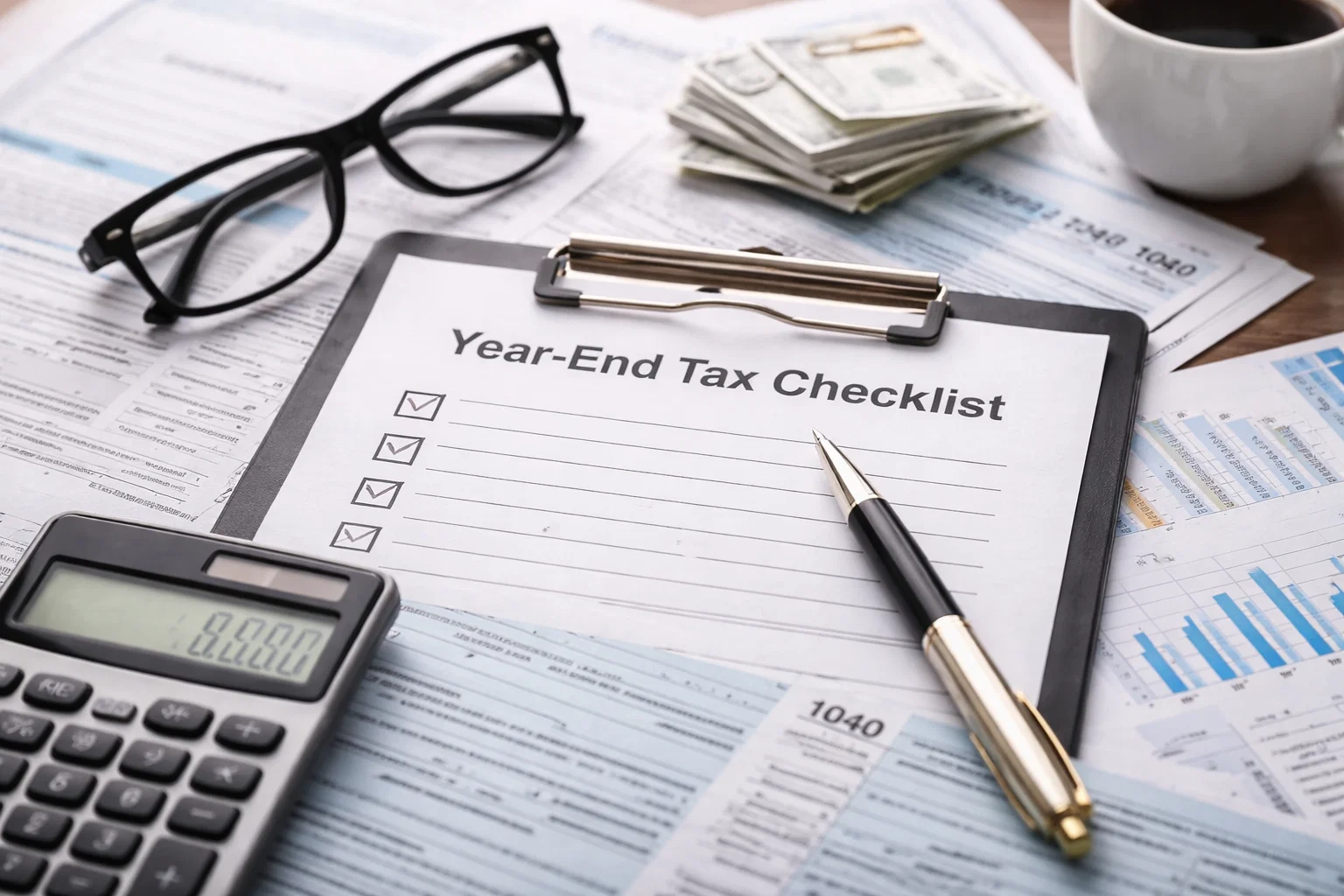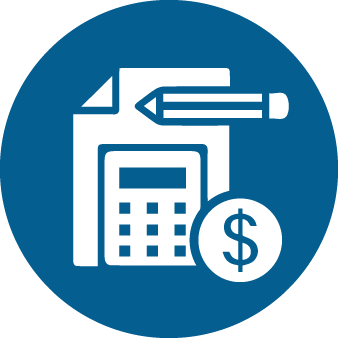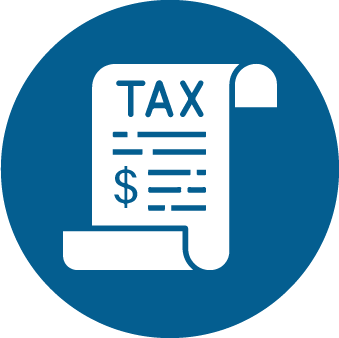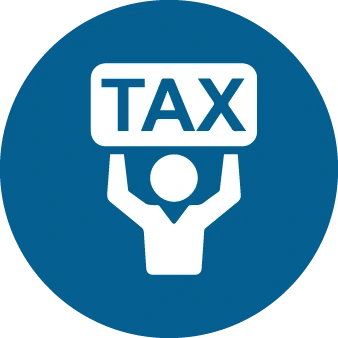A tax lien is a legal claim the government places on your property when you fail to pay taxes. In New Jersey, tax liens can damage your credit score, prevent you from refinancing or selling your home, and even result in the loss of your property through tax sale proceedings.
These liens may come from the IRS, the New Jersey Division of Taxation, or your local municipality.
The process of removing a tax lien can be complex, depending on the lien's origin. Whether you're facing a state income tax lien, a property tax lien, or a federal tax lien, this guide will walk you through the steps to resolve it and prevent future liens from affecting your financial stability.
Understanding Tax Liens in New Jersey: Types and Implications
What is a Tax Lien?
A tax lien is a public record that secures the government's interest in your property due to unpaid taxes. It doesn't immediately result in property seizure but serves as a legal warning that the government may take action if the debt isn't resolved.
Once filed, a lien becomes part of your credit history, reducing your score and hindering your ability to secure financing or sell property.
Types of Tax Liens Affecting NJ Residents
New Jersey State Tax Liens
Issued by the NJ Division of Taxation, these liens may result from unpaid income taxes, sales taxes, or other business taxes. Once your tax liability is officially docketed as a Certificate of Debt (COD), it becomes a legal judgment and can be enforced through garnishment, levies, or asset seizure.
Get detailed information within Our NJ Tax Center, taxpayers can access comprehensive resources about state tax obligations.
New Jersey Property Tax Liens
These are enforced by your municipal tax collector for unpaid local property taxes.
After a grace period, towns can auction off a tax sale certificate, giving the buyer legal rights to your property if you fail to pay back the lien — plus interest and penalties — within the redemption period.
Understanding how long can NJ state collect back taxes is crucial for planning your financial response.
Federal Tax Liens
The Internal Revenue Service (IRS) may file a lien if you neglect or fail to pay federal taxes. These are recorded against all your property, not just real estate, and are often more difficult to remove. The NJ IRS tax rates table provides current information on federal tax obligations for New Jersey residents.
Impact of a Tax Lien on NJ Residents
- Credit Score Damage: While unpaid tax liens may negatively impact your credit, paid liens are generally no longer reported by credit bureaus under current policies. However, unresolved liens can still affect loan approvals and interest rates.
- Asset Risk: Liens can lead to bank levies, wage garnishments, or forced sale of assets. Many taxpayers wonder can the state of NJ take money from your bank account, and the answer is yes when certain collection procedures are followed.
- Real Estate Restrictions: You may be unable to sell or refinance your home until the lien is satisfied or released.
Removing New Jersey State Tax Liens
Identifying Your NJ State Tax Lien
To confirm the existence of a lien:
- Visit the NJ Division of Taxation Judgment Search Portal.
- Look for a Certificate of Debt (COD) or Docketed Judgment tied to your name.
- Gather essential information: COD number, tax year, and outstanding balance.
It's important to understand the NJ due date for payment of tax to avoid future liens.
Satisfying Your NJ State Tax Lien (Payment)
To pay off the lien:
- Contact the NJ Division of Taxation – Judgments Unit:
- Email: judgments.taxation@treas.nj.gov.
- Request a Payoff Statement: Include your docketed judgment number and taxpayer ID.
- Submit Certified Funds: Acceptable forms include certified checks and money orders.
- Obtain a Paid-in-Full Letter: This letter is crucial for removing the lien from public records and credit bureaus. For comprehensive guidance on how do I pay off a tax lien in NJ, consulting with tax professionals can ensure proper procedures are followed.
NJ State Tax Lien Resolution Options (Beyond Full Payment)
- If you can't afford to pay in full: Installment Agreements: Apply for a structured monthly payment plan.
- Offer in Compromise: NJ may accept a reduced amount based on financial hardship.
- Hardship Relief: The state may temporarily suspend collection if you can prove inability to pay due to hardship. Understanding what is the penalty for late payment of taxes in NJ helps in calculating total liability.
Note: NJ's criteria for these programs are strict and may require financial disclosure and documentation.
Appealing a New Jersey State Tax Lien
If you believe the lien is in error: File a dispute with the NJ Division of Taxation.
If unresolved, escalate to the Superior Court of New Jersey.
You may need the help of a tax accountant new jersey or enrolled agent.
Removing New Jersey Property Tax Liens
Understanding Property Tax Liens in NJ Municipalities
Local tax collectors issue liens for delinquent property taxes. After the grace period, municipalities may conduct a tax lien sale, transferring the debt to a third party in exchange for a tax sale certificate. Property owners often inquire about what are the taxes in Clifton, NJ to better understand their local obligations.
Redeeming a NJ Property Tax Lien
To remove the lien:
- Contact Your Municipal Tax Collector: Provide your block and lot number, property address, and certificate number.
- Request a Redemption Statement: This will include interest, penalties, and fees.
- Make Payment via Certified Funds: Usually cash, certified check, or money order.
- Receive Lien Release: Once satisfied, request written proof from the municipality and ensure it's recorded at the county clerk's office.
Avoiding Future Property Tax Liens in NJ
- Mark Due Dates: Most NJ municipalities require quarterly payments.
- Apply for Tax Relief: Programs like Senior Freeze (income limit now $150,000), ANCHOR Rebate (up to $250,000 for homeowners), and Veterans Deductions can ease the burden and reduce delinquency risks. Understanding who is eligible for the NJ property tax relief credit can help reduce your tax burden. Check NJ Treasury updates for current eligibility. Many taxpayers also wonder when can I expect my NJ rebate check after applying for relief programs.
Addressing Federal Tax Liens for NJ Residents
Overview of Federal Tax Lien Removal
There are four main methods:
- Full Payment: Most straightforward route.
- Discharge of Property: Removes lien from specific property to allow for sale/refinance.
- Subordination: Allows another creditor to move ahead of the IRS, helpful in refinancing.
- Withdrawal: Removes the lien from public record (use IRS Form 10916(c), the current application for lien withdrawal).
How Federal Liens Impact NJ Property and Credit
Federal tax liens affect your ability to:
- Sell or transfer New Jersey real estate.
- Get mortgage approval or refinance.
- Maintain a strong credit score, even after the lien is paid. High earners often ask how much is 250000 after tax in NJ to understand their net income and plan accordingly.
Resources for Federal Tax Lien Assistance
- IRS Lien Hotline: 800-829-7650
- Taxpayer Advocate Service – New Jersey Office: Offers free assistance for resolving complex lien issues. Professional tax relief service near nj providers can also help navigate federal lien resolution.
Clearing Your Record: Removing Tax Liens from Public Records and Credit Reports in NJ
Public Record Removal
After full payment:
- File a Warrant to Satisfy Judgment with the NJ Superior Court or county clerk.
- Ensure all release documents are properly recorded.
- Follow up with the relevant agency to confirm removal.
Credit Report Impact and Removal
- Contact Credit Reporting Agencies: Send proof of satisfaction to Equifax, Experian, and TransUnion.
- Request Manual Update: Provide the "paid-in-full" letter or lien release document.
- Submit a Goodwill Letter: In some cases, especially with state tax liens, this can help remove derogatory marks.
- Monitor Your Credit Report: Use AnnualCreditReport.com to check for state or local tax liens, as federal liens are no longer reported.
Ensure any resolved liens are properly updated. Many property owners also research at what age do you stop paying property tax in NJ for long-term financial planning.
Proactive Steps: Avoiding Tax Liens in New Jersey
Timely Tax Payments
Whether it's income tax, property tax, or sales tax, paying on time is the best way to avoid liens.
Set up reminders or automatic payments to stay compliant. Taxpayers should also understand what is the $250 property tax deduction in NJ to maximize available credits.
Seeking Professional Guidance
If you're unsure how to proceed:
- Consult a tax attorney, CPA in NJ, or enrolled agent.
- For those wondering how to find a tax accountant near me, professional services are available throughout New Jersey.
Tax professionals understand NJ-specific lien procedures and can negotiate or appeal on your behalf. Many small business owners ask what type of accountant is best for small business when seeking professional assistance.
Conclusion
Dealing with a tax lien in New Jersey may feel overwhelming, but understanding your options and taking timely action can protect your credit score, property, and financial future.
Whether you're handling a state, federal, or municipal lien, follow the right procedures to satisfy, release, or appeal the claim. For comprehensive assistance, accounting firms in nj offer specialized services including business tax services and bookkeeping services in new Jersey.
Need help navigating tax lien resolution? Don't wait — consult a qualified NJ tax professional to take the first step toward a lien-free future.
Need help removing your NJ tax lien? Contact Precision Accounting intl to protect your assets and clear your record today.
Related Articles
Services provided for you
Bookkeeping Services in Clifton, NJ
We serve a range of industries and customers, in an organized, friendly, and reliable way.
Business Tax Services
We are in a position to identify tax planning shots that reduce both your current and future tax liabilities.
Individual Tax Services
We gauge our worth by the personal and business successes of our clients and industries.
Payroll Services
For small and large corporations, payroll systems, highly qualified payroll experts support our services. Our primary objective is to provide customized services and highly favorable pricing for you.
Non-Profit Organization Services
Precision Accounting Intl can assist you set up and maintain your non-profit organizations nontaxable standing by handling all the authority reportage for you.
Part-Time CFO Services
If you"re ready enough to be in this role. Our Part-Time CFO Service Package provides you with a knowledgeable financial manager who will work with you to help guide the progress of your business.



